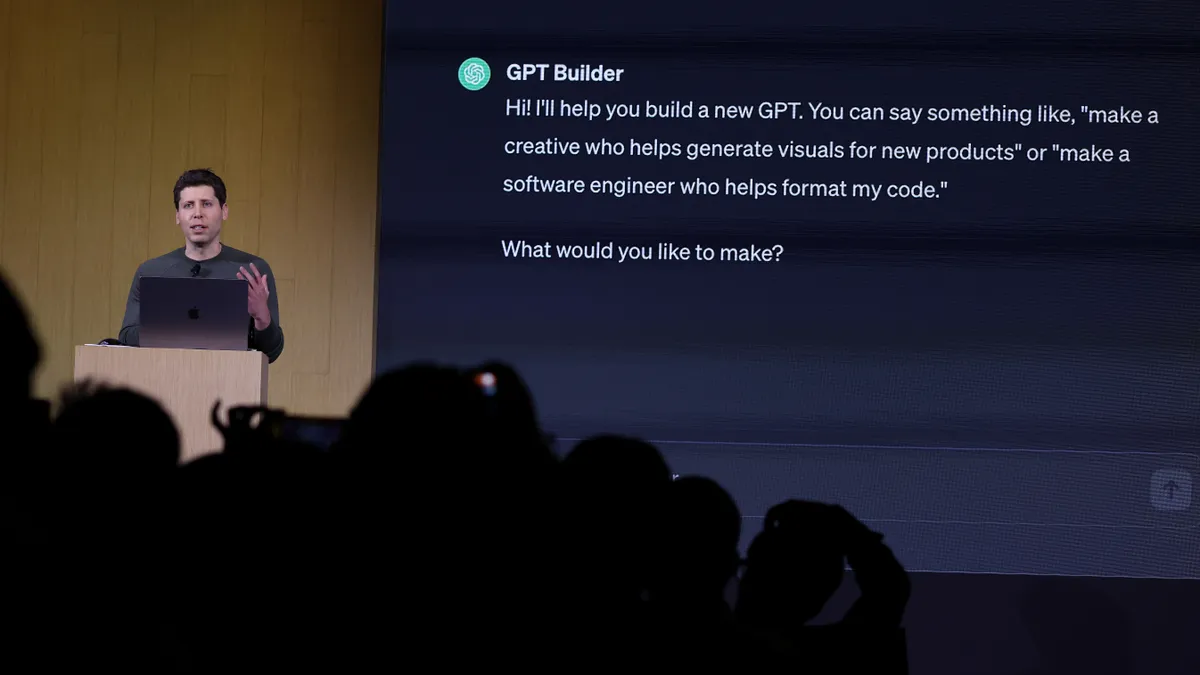Understanding Big Data (capital letters and all) is said to lead HR practitioners to that Holy Grail: The seat at the proverbial table, where strategy is devised and voices matter. But being truly conversant in strategy requires more than just knowing the numbers. It also requires mastery of the core competencies of HR — in essence, the people-oriented skills and strategies HR is known for.
“Our point of view is that there is this really unique opportunity for HR,” Michael Gretczko, principal at Deloitte and General Manager of ConnectMe, told HR Dive. “You see this massive disruption of business models, and there’s this massive disruption in the workforce.”
HR sits right at the intersection of people management and business innovation, giving the department a growing platform to take the lead of company strategy.
But HR organizations are not taking advantage of that position, Gretczko said.
The power of competencies
The rise of Big Data and innovative management tech has led to other important workplace questions. Automation is the buzzy problem of the day, and for good reason. Robots may not “take all the jobs” — but how will HR manage the workplace when robots do end up taking at least some of the jobs?
That’s the type of thinking HR managers need to be applying, Gretczko noted. HR has to be at the forefront of workplace strategy to ensure automation is applied effectively and to keep humans in jobs where they best belong.
“One of the main values of competencies in general are, to me, the ability to better link those smaller sets of competencies to some form of strategy or goals,” Joseph Jones, director of HR competencies and resources research for SHRM, told HR Dive.
Competencies are broad and varying, but largely tie back to sets of knowledge, skills, abilities and even personality characteristics that allow HR managers to thrive in all business environments. Depending on the day, some competencies matter more than others, though they all connect and blend together when formulating strategy.
One competency that’s gained importance in recent years: the ability to critically evaluate data and employ evidence-based decision-making in the day-to-day.
“HR has been talking about data analysis for a long time, but I think nowadays the critical importance of it has gotten so big that they are recognizing … that you can’t survive if you don’t know how to at least understand what is coming out of the analysis,” Jones said.
But no competency stands alone. Business acumen is also a growing trend in HR, but that can incorporate a slew of other competencies, including data evaluation and an understanding of globalization and other cultures.
“I don’t think there’s been a ton of recognition yet ... but understanding how all these different competencies interact is going to be more important for the HR profession going forward,” Jones said. “When we talk about critical evaluation and global effectiveness … you need to understand what the data is saying about changes in the workplace overall.”
HR can’t rely on the data alone. People tend to be harder to predict than simple numbers like to illustrate. But understanding the inclinations of both numbers and the people they represent will allow HR managers to execute a strategy that truly helps the business.
Applying technique to strategy
Strategy, of course, isn’t a new goal for HR. Procedural HR has long been the thorn in the side of the HR manager longing to look at the big picture. But until recently, attempts to allow HR to become more strategic only created more problems.
“For a long time, companies focused on creating more capacity so we can show up and do strategic stuff,” Gretczko said. “But in that situation, [HR] just got more fires to fight.”
Capacity is an important aspect of what Gretczko refers to as the “Four C’s,” but it, like most things in HR, can’t function in a vacuum.
The rest of the Four C’s include:
-
Capability: New skills and competencies to deliver value in a changing business world.
-
Community: Every company is trying to sort this out, which means HR managers can have a resource in one another.
-
Credibility: When an HR professional shows up to the business, they need to have the right data in hand to support their strategies and ultimately change the business, which of course gives the HR profession more credit overall.
In the right place at the right time at the right cost — HR is responsible for maintaining all of that when executing strategy, Gretczko said.
Looking to the future
HR managers face a myriad of daily demands, but staying on top of trends and maintaining core competencies will help stem the tide of change — or, at least, give a stronger sense of control over it.
“A lot of the things we are going to be doing more on this year is actually looking at what are the trends in the future of work in general and what does that mean for HR,” Jones said.
The constant demand for real-time data, day in and day out, is already a shift in perspective for many HR professionals. Recognizing that challenge will be key to getting ahead of it, especially as automation provides even more access to important pieces of data. But also remember: It's more than data. It's about understanding how people and data interact, and why those connections matter.
“Robots aren’t serving your coffee,” Gretczko said, “but there’s stuff behind the scenes that are changing how companies are delivering work.”




















